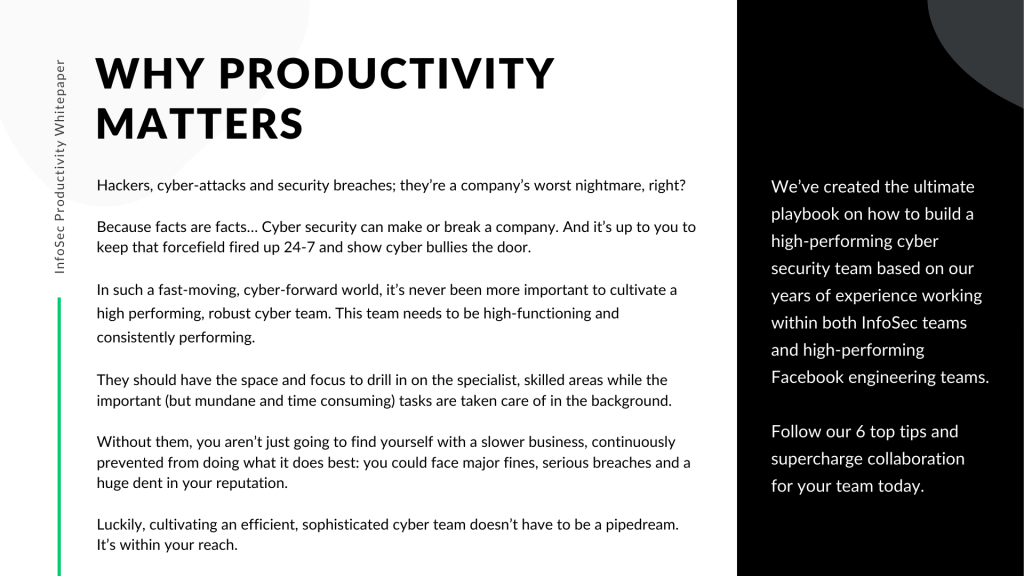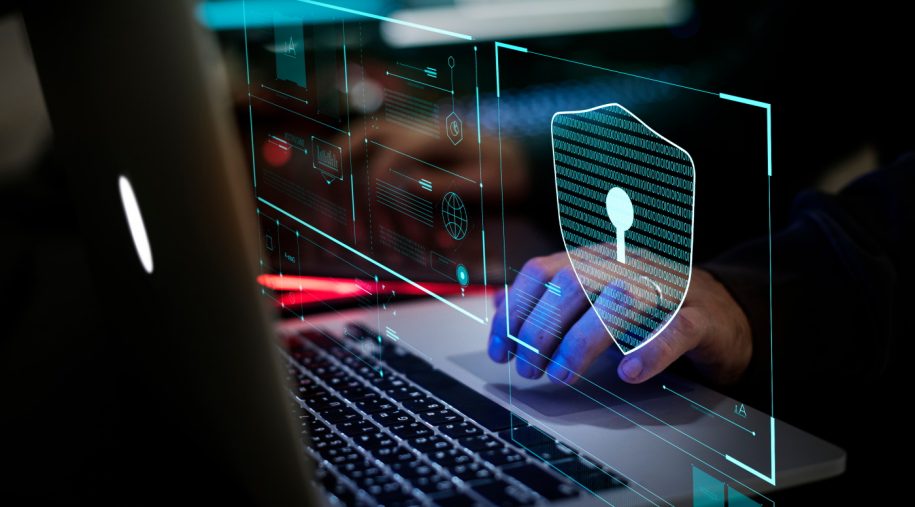Information security is the practice of protecting information and data from potentially destructive attacks. It’s a process you need to prioritise.
When it comes to your business security, maintaining a tight grasp on your information is vital. It’s the difference between a thriving, secure business and one that is open to a plethora of risk and damage.
Because information security – and its critical role within cyber security – matters. It protects an organisation’s ability to fully function, protects the data that you collect and use and enables the safe operation of the applications used across IT systems.
And with October being European CyberSec Month, we thought now was the perfect time to dig a little deeper into precisely how information security should play a role in your organisation.
What is information security? Information security is the practice of protecting information by mitigating the unauthorised use of said information. Primarily, it focuses on the theft of electronic data and information.
What are the core principles of information security?
You might have heard the phrase ‘the three principles of information security’. Or perhaps you’ve heard them referred to as the ‘CIA triad’.
Essentially, the idea is that information security can be drilled down into three core concepts

These concepts should form a fundamental part of any InfoSec team, and should provide a framework for the way they carry out their work.
Let’s tap into each concept further.
Confidentiality
This is the idea that only authorised users and processes should ever be able to access or modify company and customer data.
Confidentiality measures protect against the unauthorised disclosure of information, ensuring that private information remains private. Those users who are unauthorised are actively prevented from obtaining access.
Integrity
Here we must consider how data is maintained, and put the systems and process in place to ensure it is kept in a correct state and that it is protected from unauthorised modifications (either accidentally or maliciously).
The integrity principle is important as it is proof that data can be trusted, that it is accurate and that it has not been tampered with.
Availability
The final principle enables authorised users to access their data whenever they need to do so.
This measure looks at protecting the systems necessary to make data fully available at any point; by doing so, organisations can ensure that data can be used whenever it is required to make decisions.
Depending on the nature of your business, one of these principles may take precedence over another. For example, confidentiality is vital in healthcare; integrity is critical in the financial sector where the difference between £100 and £1,000,000,00 could be catastrophic; and availability is important in e-commerce (where downtime can cost thousands of pounds per minute)
Why is information security so important in today’s world?
There are many reasons why information security is especially important in today’s society. It encompasses everything that is necessary to protect sensitive, personal information and the company that holds it.
And the threat is growing. Cyber attackers are finding new ways to access private information and are using more sophisticated tools to do so. It is therefore vital that all organisations use information security to:
- Protect customer information and, as a result, keep a firm hand on their trust
- Avoid any regulatory fines for breaches
- Ensure they can continue delivering their services and running their business
The fact is that information security breaches can have a detrimental impact on a business.
Take Marriott. In January 2020, the hotel chain faced its second data breach in three years, with 5.2 million guest records stolen. This followed the first attack where 339 million guests had data exposed. This monumental number was part of a catastrophic ongoing cyber security breach, where it was revealed that threat actors had been given unauthorised access to the hotel’s Starwood network dating back as far as 2014.
More recently, Garmin faced their own frightening information security attack. In July 2020, a ransomware attack on the GPS maker caused a huge level of destruction on their website, customer support, apps and all communication. The cyberattack encrypted their systems and locked staff out on a global basis; the business was essentially taken offline. It is believed that Garmin paid a $10 million ransom to recover the data held hostage as a result of the attack.
Had both Marriott and Garmin been better protected with their information security, these breaches many never have happened.
It doesn’t matter how small or large your business is; information security is a paramount element of any business strategy.
Whether you’re a billion dollar company like Garmin or a start-up business with big aspirations, no one is immune to the threat of information theft. It can make or break a company.
If you value your data and want to protect your business from cyber attack, it is a necessity.
How productive is your InfoSec team?
Download our free InfoSec Productivity whitepaper where we discuss strategies and tactics to help you get the most out of your team.
Learn how to:
- Collaborate more effectively between teams
- Improve productivity of InfoSec teams
- Increase engagement with internal customers


